Ayatollah Bashir Najafi – the Pakistani who led Gen Soleimani's funeral prayers
Najafi is one of the most important religious figures in Iraq and for Shias around the world
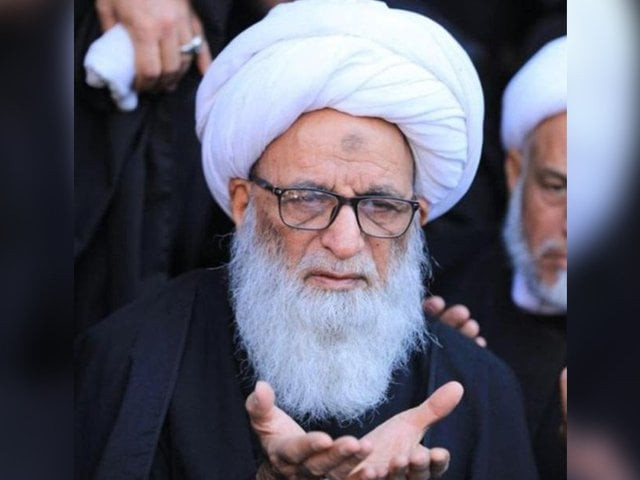
Ayatollah Bashir Najafi is one of the most important religious figures in Iraq and for Shias around the world. PHOTO: ALNAJAFY.COM
The funeral prayers of the most revered Iranian commander were led by Iran’s Supreme Leader Ayatollah Ali Khamenei in Tehran on Tuesday. But before his body was taken to his home country, his funeral prayers were also offered in Iraq by another key religious figure in Shia Islam, who is a Pakistani.
Ayatollah Hafiz Bashir Hussain Najafi, 78, led the funeral prayers in Najaf on Monday, BBC Urdu reported.
Najafi, who is one of the leading Maraji (Shia scholar) in Najaf, moved to Iraq in 1960s for higher religious studies.
The place of Marja or Marja-e-Taqlid (Grand Ayatollah) is given to Shia clerics who have the right to make legal decisions under the Islamic laws to guide other scholars and practicing Shia Muslims.
Ayatollah Najafi was born in Jalandhar before the partition of the subcontinent and his father later moved to Batapur near Lahore.
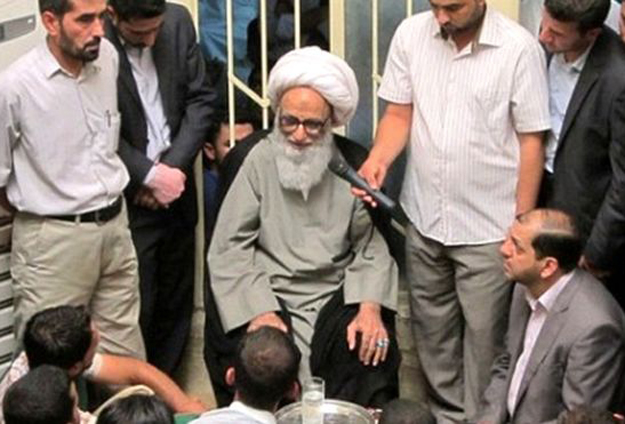 PHOTO: ALNAJAFY.COM
PHOTO: ALNAJAFY.COMHe received his early education in Arabic grammar and jurisprudence from his grandfather Muhammad Ibrahim and uncle Khadim Hussain, and then studied under the aegis of Ayatollah Akhtar Abbas Quds in Jamia Muntazir in Lahore, where he later became involved in teaching.
His brother Allama Abid Hussain was also a scholar while two of his brothers were poets.
After moving to Iraq in the 1960s, Najafi studied Islamic jurisprudence and principles from prominent scholars such as Ayatollah Muhammad Kazim Tabrizi, Ayatollah Syed Muhammad Rouhani and Ayatollah Syed Abu al-Qasim Khoi in Najaf.
The Iraqi city is also famous for the shrine of Hazrat Ali – the fourth Caliph of Islam who was a cousin and son-in-law of Prophet Muhammad (PBUH).
Najaf in Iraq and Qom in Iran have a central place for the teachings of Shia Islam where future religious scholars are educated.
According to Ayatollah Najafi's personal website, he formally began teaching in Hawza al-Ilmiyya seminary in Najaf in 1966 and taught various subjects including literature, philosophy, logic and jurisprudence.
 PHOTO: ALNAJAFY.COM
PHOTO: ALNAJAFY.COMThe famous seminary was founded by Abu Jafar Mohammad bin Hassan Tusi in the tenth century. Ayatollah Najafi is still associated with this seminary, and he has dedicated his life to it.
He also received wounds in an attack on the Hawza during former Iraq president Saddam Hussein's regime.
One of Najafi’s brothers, his older son and other family members reside in Pakistan, but according to his representative in the country, Allama Sibtain Sabzwari, the cleric is yet to visit his home country ever since he left it for Iraq in the 60s.
“It is our desire that he would come to Pakistan for once at least. His father, uncle and older brothers and sisters have died during this time but he has not come back,” said Sabzwari.
“Obviously he would not have reached to that status [Grand Ayatollah] if he had come here. For reaching that status many sacrifices have to be given. The role of the Maraji could not be achieved by leaving that place [Najaf]," he added.
“Some Ayotullahs have come back in Afghanistan and Pakistan but their fatwas could only get acceptance at the national level and not honoured all over the world. By sitting in Najaf, his role in the religious and political context will be huge.”
Allama Sabzwari further told BBC that Ayatollah Najafi’s eldest son is an engineer and the younger a businessman in Dubai. Two of his sons are religious scholars, of which Sheikh Ali Al-Najafi is his spokesman.
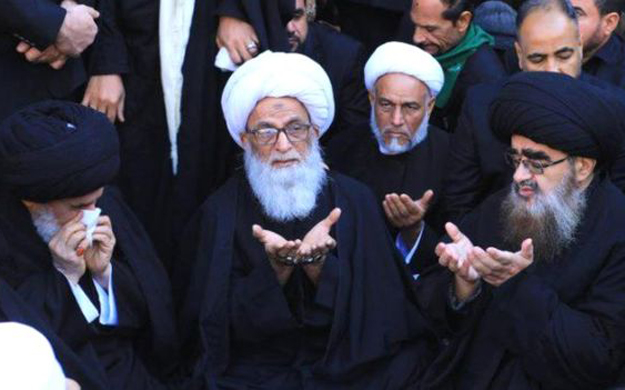 PHOTO: ALNAJAFY.COM
PHOTO: ALNAJAFY.COMApart from religious importance, Najafi has also been instrumental in the process of consultation about the regional politics in Iraq. Last year, Iran's President Hassan Rouhani had also met him.
In 2016, a picture of a meeting between Ayatollah Najafi and Iraqi commander Abu Mahdi Mahindas, who was killed along with Soleimani in Friday’s attack, also came to fore.
According to reports, the cleric had instructed him to clear Iraq of Islamic State militants.
In his statement after the killing of General Soleimani and Abu Mahdi Mahindas, Ayatollah Najafi described the two men as heroes and condemned the violation of Iraqi borders, sovereignty and violation of international treaties. He regretted that Iraq had been turned into a battleground.
Najafi has also authored numerous books and runs various welfare institutions, including orphanages and educational institutions. He especially paid special attention to reconstruction of seminaries and Imambargahs that were affected during the Saddam Hussein regime.


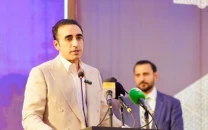
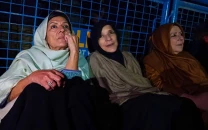
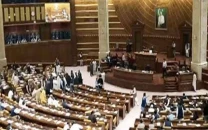
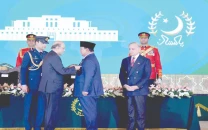













COMMENTS
Comments are moderated and generally will be posted if they are on-topic and not abusive.
For more information, please see our Comments FAQ